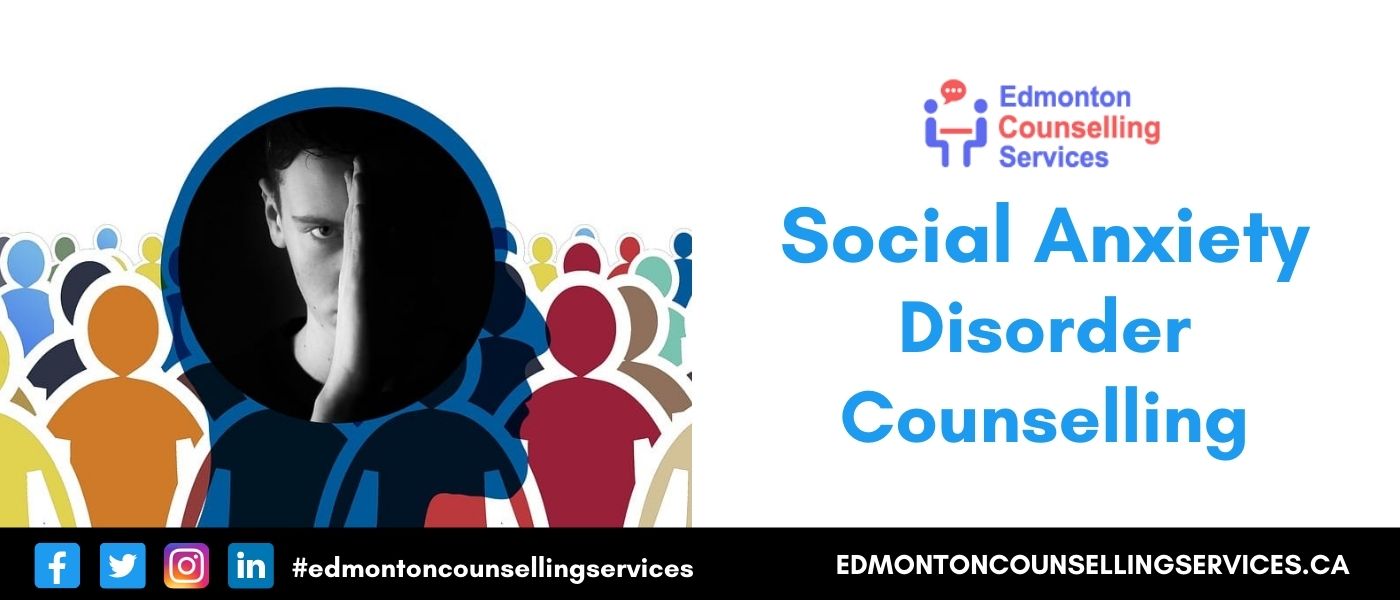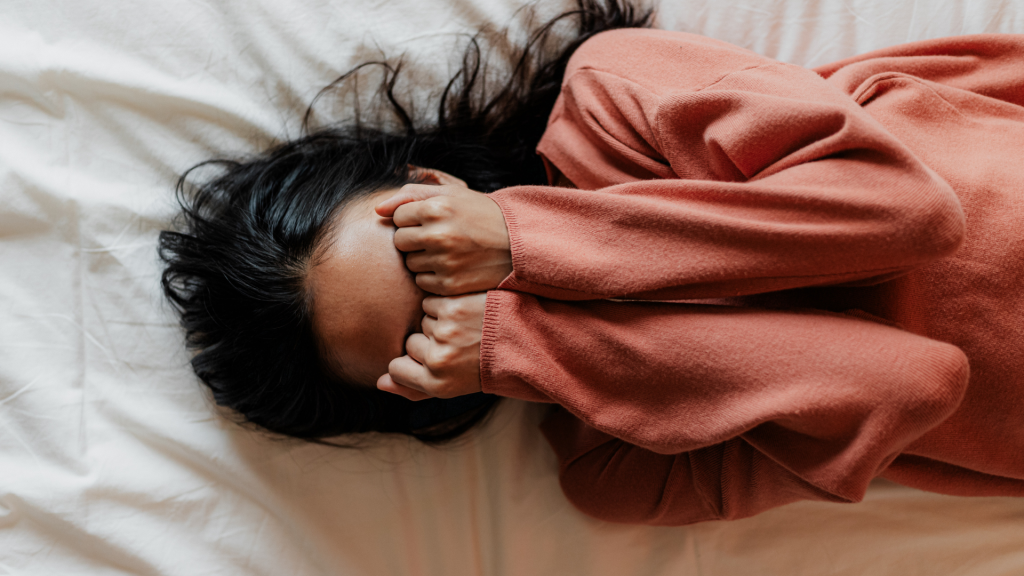One-on-one counselling for anxiety sessions that make a difference
One-on-one counselling for anxiety sessions that make a difference
Blog Article
Checking Out Various Techniques in Coaching for Anxiousness Condition for Long-term Adjustment
When tackling anxiety disorders, it's vital to explore a selection of counseling methods. Each method supplies unique insights and tools to aid you manage your signs and symptoms effectively. You might locate that integrating methods can yield the most effective results. Understanding the nuances of these strategies is key to promoting lasting change. What happens if the best combination could launch a new degree of emotional health for you?
Understanding Anxiousness Disorders: A Short Introduction
Stress and anxiety problems, which affect numerous individuals worldwide, can substantially impact life. You might experience overwhelming sensations of fear or stress that seem unmanageable. These sensations can lead to physical signs like a racing heart, sweating, or even dizziness. Typical sorts of anxiety conditions include generalized anxiousness condition, panic disorder, and social stress and anxiety disorder. Each has special signs, however they all share a tendency to disrupt your routine and relationships.Understanding the origin of your stress and anxiety is essential. It could stem from genetics, brain chemistry, or life experiences. Identifying your triggers can help you manage your responses much better. It is very important to bear in mind that you're not the only one in this battle. Lots of people deal with comparable challenges, and seeking aid is a strong action towards sensation much better. By discovering anxiety disorders, you're already on the course to understanding and handling your problem much more effectively.
Cognitive-Behavioral Therapy: Testing Adverse Thought Patterns

Determining Unfavorable Thought Triggers
When you run into minutes of distress, recognizing the specific triggers behind your unfavorable ideas can be necessary in managing anxiety. Start by taking note of situations that prompt sensations of worry or worry. Is it a crowded area, an upcoming due date, or a conversation with specific people? Take down these instances in a journal. This will aid you identify patterns in your reasoning. Likewise, notification physical sensations that accompany your adverse thoughts, like a racing heart or rigidity in your breast. By pinpointing these triggers, you acquire insight into what's fueling your anxiety. Understanding these connections is the initial step in testing those thoughts and eventually gaining back control over your psychological feedbacks.

Changing Thoughts With Positives
Challenging unfavorable idea patterns is an important action in changing your frame of mind and decreasing anxiety. You might frequently discover on your own trapped in cycles of insecurity or catastrophic thinking. As opposed to allowing these thoughts dictate your sensations, technique changing them with favorable affirmations or practical alternatives. When you assume, "I can not handle this," move it to, "I can take care of obstacles one action at a time." This basic adjustment can substantially impact your mood. Regularly recognizing and countering these negative ideas helps produce a healthier inner discussion. Bear in mind, it takes time and initiative, however constantly practicing this strategy can bring about long lasting change, encouraging you to face anxiety with restored self-confidence and resilience
Structure Coping Methods With Each Other
Replacing negative ideas is just the beginning of taking care of anxiousness successfully. To develop long-term modification, you need to develop coping techniques that encourage you. Cognitive-Behavioral Treatment (CBT) aids you determine and challenge those unhelpful thought patterns. With each other, you and your therapist can explore how these ideas impact your feelings and behaviors.Start by developing useful techniques, like journaling or mindfulness workouts, that permit you to challenge stress and anxiety head-on. When you face your fears slowly, you'll learn to react in a different way.

Mindfulness and Acceptance-Based Approaches: Cultivating Present-Moment Recognition
As you browse the intricacies of anxiety, including mindfulness and acceptance-based methods can considerably boost your capability to grow present-moment understanding. By concentrating on the present moment, you'll locate that you can observe your ideas and sensations without judgment. This technique aids you acknowledge your anxiety without feeling bewildered by it.Engaging in mindfulness exercises, such as deep breathing, body scans, or directed reflections, enables you to ground on your own in your current experience. Acceptance-based techniques urge you to welcome your feelings as opposed to combat against them. They shed their power over you.Incorporating these techniques into your day-to-day routine can transform how you react to anxiousness when you accept your feelings. You'll establish resilience and discover to navigate stressful circumstances with greater simplicity. Ultimately, cultivating present-moment awareness lays the foundation for enduring adjustment, equipping you to lead a more meeting life.
Exposure Therapy: Challenging Concerns Gradually
Direct exposure therapy assists you face your fears in a progressive method, making it much less overwhelming. You'll find out techniques to deal with anxiety-provoking situations detailed, while likewise building coping techniques to handle your responses. This technique empowers you to take control and decrease anxiety in time.
Gradual Direct Exposure Techniques
When encountering stress and anxiety, progressively confronting your concerns can be a powerful means to restore control. This method, referred to as gradual exposure, entails gradually revealing on your own to the situations or objects that activate your stress and anxiety. Begin with much less daunting circumstances and progressively work your way as much as more challenging ones. For example, if you're worried of public speaking, you may start by speaking before a mirror, then progress to sharing ideas with more info a friend, and ultimately deal with a little team. Each step assists desensitize you to the worry, building your confidence gradually. Remember, it's vital to speed yourself and celebrate little victories as you move with this process, reinforcing your ability to manage anxiousness effectively.
Structure Coping Approaches
Structure effective coping methods is crucial for handling stress and anxiety, especially as you challenge your fears slowly. One effective technique is direct exposure treatment, where you start by encountering your worries in a controlled way. Begin with less intimidating circumstances and slowly work your way as much as more difficult scenarios. This steady direct exposure aids desensitize you to anxiousness sets off, making them less overwhelming.Incorporate relaxation techniques, such as deep breathing or mindfulness, to soothe your mind during direct exposure. Track your progress, celebrating little success in the process to enhance your self-confidence. Remember, it's alright to take your time; the goal isn't perfection but steady enhancement. By building these approaches, you'll encourage yourself to browse anxiety and embrace life extra totally.
Psychodynamic Therapy: Discovering Origin of Anxiety
Psychodynamic therapy explores the unconscious mind, disclosing the source of your stress and anxiety - Counseling services for anxiety. By examining your ideas, feelings, and previous experiences, this method aids you reveal underlying problems and unresolved issues that may add to your current stress and anxiety. You'll work with a therapist to investigate youth experiences, partnerships, and emotional patterns that form your reactions today.As you acquire insight into these much deeper layers of your mind, you'll begin to acknowledge exactly how past occasions influence your present habits. This understanding can cause catharsis, enabling you to refine emotions you might have suppressed.Through the therapeutic relationship, you can also determine protection devices that may have created over time, using a clearer course to alter. Eventually, psychodynamic treatment equips you with the devices to resolve your anxiousness at its core, advertising lasting improvement in your psychological wellness
Integrative and Holistic Approaches: Integrating Strategies for Greater Efficiency
Integrating different healing strategies can improve your trip toward managing anxiousness more successfully. By incorporating elements from cognitive-behavioral therapy, mindfulness practices, and alternative techniques, you can develop a tailored approach that addresses your one-of-a-kind needs. You may use cognitive-behavioral methods to challenge adverse idea patterns while including mindfulness exercises to ground yourself in the present moment.Additionally, exploring all natural practices such as yoga exercise or meditation can promote leisure and decrease stress and anxiety signs. This blend allows you to establish better self-awareness and resilience.Experimenting with these diverse techniques can assist you uncover what resonates most with you. Bear in mind, it has to do with locating a synergy that works, rather than adhering to a single method. This integrative method not just offers immediate alleviation but likewise cultivates lasting skills for taking care of anxiety, empowering you to recover control over your life.
The Role of Support Solutions: Structure Durability Via Connection
While it could seem that handling anxiety is a singular journey, having a solid assistance system can play an important duty in your strength. Surrounding on your own with understanding good friends, family, or assistance groups develops a risk-free room where you can openly share your experiences and sensations. You remind on your own that you're not alone in this struggle.These connections supply motivation and can provide practical coping approaches that have functioned for others when you attach with others. It's also an opportunity to obtain viewpoint; buddies can help you see scenarios differently, minimizing sensations of isolation.Moreover, psychological assistance cultivates a feeling of belonging, which can considerably alleviate stress and anxiety symptoms. By leaning on your support group, you can build resilience and take on difficulties much more effectively. Bear in mind, getting to out for assistance is a sign of stamina, and it can make all the distinction in your trip towards managing anxiety.
Regularly Asked Concerns
What Are the Usual Signs And Symptoms of Anxiousness Conditions?
You might experience restlessness, exhaustion, difficulty concentrating, irritation, muscle mass tension, and sleep disruptions. Physical signs and symptoms can consist of rapid heart beat, sweating, and trembling. Acknowledging these signs early can help you look for ideal assistance and therapy.

The Length Of Time Does Therapy Normally Last for Stress And Anxiety Conditions?
Therapy for stress and anxiety conditions generally lasts anywhere from a few weeks to a number of months. It really relies on your private demands, development, and the methods your specialist uses to assist you handle your anxiety successfully.
Can Drug Be Used Together With Treatment for Anxiousness?
Yes, medicine can definitely be made use of together with treatment for anxiousness. Integrating both strategies commonly enhances therapy performance, helping you handle signs and symptoms while checking out underlying problems via therapy. Constantly consult your doctor for customized suggestions.
Are There Self-Help Approaches for Managing Stress And Anxiety?
Yes, there are a number of self-help approaches for managing anxiety. You can exercise mindfulness, involve in regular exercise, preserve a well balanced diet regimen, develop a routine, and make use of deep breathing methods to help in reducing anxiousness symptoms properly.
How Do I Know if I Required Specialist Assistance for Anxiousness?
You ought to take into consideration looking for expert assistance for anxiety if it disrupts day-to-day live, triggers substantial distress, or if self-help approaches aren't functioning. Depend on your instincts; reaching out can cause far better coping skills and support. Typical types of anxiousness disorders consist of generalised anxiety disorder, panic condition, and social anxiousness condition. When you come across minutes of distress, acknowledging the certain triggers behind your unfavorable thoughts can be necessary in handling anxiousness. Replacing unfavorable thoughts is just the start of taking care of anxiety properly. By analyzing your ideas, sensations, and past experiences, this strategy assists you discover underlying disputes and unsettled problems that might contribute to your current anxiety. It's also a chance to acquire point of view; good friends can help you see situations in a different way, lowering feelings of isolation (Counseling services for anxiety).Moreover, psychological assistance promotes a feeling of belonging, which can significantly minimize stress and anxiety signs and symptoms
Report this page